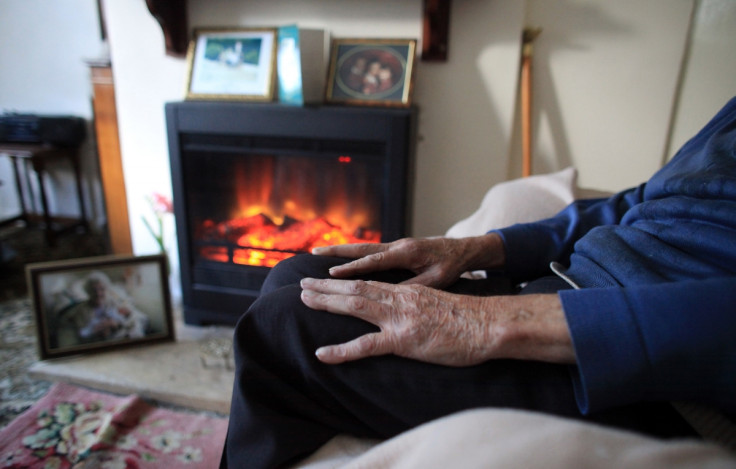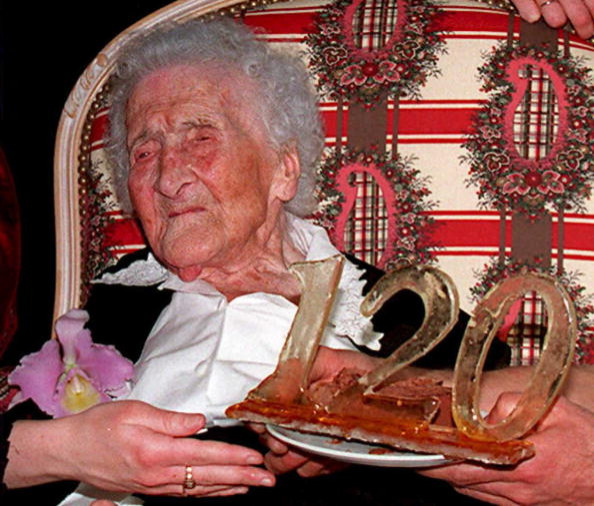Secret to a long and healthy life? Centenarians ward off illness until the very last years of their lives
In contrast to people who die earlier, centenarians only fall sick at tail end of life.

Centenarians spend the last years of their lives in relatively good health, compared with their peers who die younger, scientists have found. As human life-spans may increase, the discovery suggests it will not necessarily mean people will live more years with disease and disability.
The research, published in Journal of the American Geriatrics Society, examines the health status of centenarians and near-centenarians to determine whether people really grow sicker as they age.
The scientists identified the time in centenarians' lives when they started developing debilitating diseases, and discovered that the period they spent in sickness was on average shorter than that of other elderly, non-centenarian adults.
This was certainly the case for Britain's oldest woman, Gladys Hooper, who died at the age of 113 on Saturday (9 July). Her 85-year-old son Derek Hermiston said she had been in decent health right up until her death, saying: "She just faded − 113-and-a-half is a good old age." In fact, she only moved into a nursing home at the age of 112, following a hip operation so late in life. It actually got her a Guinness World Record as Gladys became the oldest person in the world to have a hip operation at the age of 112.
Two centenarian studies
The researchers analysed data from two studies: the Longevity Genes Project and the New England Centenarian Study. Both were started in the 1990s to study the health and ageing process of people close to or older than 100 years old.
Who are centenarians?
Centenarians make up only a small proportion of the world's population, but their ranks are growing every year. Some reports in fact suggest they are the fastest growing group of the population, globally.
The world was home to nearly half a million centenarians in 2015, more than four times as many as in 1990. And this growth is expected to accelerate: projections suggest there will be 3.7 million centenarians across the globe in 2050.
The US is the country with the largest sheer number of centenarians, with about 72,000 people aged 100 or more. This is about 2.2 centenarians per 10,000 inhabitants.
Japan has less centenarians − roughly 61,000 − but with 4.8 centenarians per 10,000 inhabitants it has the highest proportion in the world, compared with its total population.
The oldest person alive today is the Italian woman Emma Morano-Martinuzzi, who is 115 years old. The oldest person ever was French woman Jeanne Calment of France, who died in 1997 at 122 years and 164 days.
Using the Longevity Genes Project, the scientists compared the health status of 483 centenarians with 696 individuals aged between 60 and 94 years old. Thanks to the New England Centenarian Study, they then compared the health status of 1,498 individuals older than 95 years old to 302 individuals aged between 58 and 95 years old.
The idea was to look at the ages at which individuals developed five major age-related health problems: cancer, cardiovascular disease, hypertension, osteoporosis and stroke.
The figures indicate that the onset of major age-related disease was delayed among centenarians, with serious illness appearing mostly in a few very last years – and sometimes last months or weeks – of their lives.
The age at which 20% of centenarians experienced specific diseases was between 18 and 24 years later than that of non-centenarians.
A good example of this is cancer. Among centenarians, it didn't afflict 20% of men until age 97 and women until 99, while 20% of people who died before the age of 100 developed cancer by age 67 in men and 74 in women.

"Most people struggle with an ever-increasing burden of disease and disability as they age," said study leader Nir Barzilai, from Albert Einstein College of Medicine. "But we found that those who live exceptionally long lives have the additional benefit of shorter periods of illness – sometimes just weeks or months – before death."
These findings may contradict the notion that the older people get, the sicker they become and the greater the cost of taking care of them − and could potentially change our approach to healthcare provision as more and more older people reach their 100th birthday.
Researchers also say it backs up the idea that centenarians could hold the key to helping other people live longer and healthier lives: "[Findings] further validates the utility of these rare individuals for the study of factors that delay or prevent a broad spectrum of diseases otherwise associated with mortality and disability," they wrote.
© Copyright IBTimes 2025. All rights reserved.






















